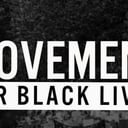Washington Post
By DAVID SPIEGEL
With his decision to allow closed-circuit TV coverage of Timothy McVeigh’s May 16 execution in Terre Haute, Ind., Attorney General John Ashcroft has acceded to the wishes of more than 250 survivors and relatives of the victims, who will gather at an Oklahoma penitentiary to witness the execution live in a bid, as Ashcroft put it, to “close this chapter in their lives.”
These people have said that witnessing the death of this mass murderer will help them move on. Commentators have reinforced that notion, borrowing a word from pop psychology — “closure” — and bandying it about as though watching McVeigh die could somehow end the daily pain of grief, the constant reminders of loved ones lost, futures robbed, joys that might have been and never will be.
I doubt it. Not only is it unlikely that McVeigh’s surviving victims will benefit, but the impact of witnessing an execution can be surprisingly damaging — even for witnesses who have no emotional connection with the condemned or the victims. That’s what I discovered with my colleagues Andrew Freinkel and Cheryl Koopman when we examined the effects on journalists who witnessed the execution of Robert Alton Harris, the convicted murderer of two teenage boys, in the San Quentin Prison gas chamber on April 21, 1992.
I’m not trying to compare survivors of the Oklahoma City bombing and relatives of the victims with those reporters. Their motivations are very different: Those who want to see McVeigh die think the punishment is appropriate revenge; reporters sometimes apply to cover executions because of their opposition to the death penalty. Nor do I intend to draw a close parallel between Harris’s death in a gas chamber and McVeigh’s by lethal injection. My aim is simply to point out something that people often underestimate — that witnessing trauma is not far removed from experiencing it.
Fifteen of the 18 reporters who covered Harris’s execution agreed to participate in our study, the results of which were published in the American Journal of Psychiatry in 1994. It was a small but significant sample: The reporters had been chosen by lottery and were thus random representatives of the much larger group that had applied to cover Harris’s execution.
We found that these professional journalists suffered severe after-effects, at least in the short term. One was tearful for weeks afterward; several told us they felt listless and had difficulty concentrating; a number reported nightmares. Several sought counseling, and one quite ambitious reporter uncharacteristically declined to cover the Los Angeles rioting that occurred shortly after the execution.
These men and women were displaying many of the reactions usually associated with acute stress. They had difficulty managing the emotions that the execution aroused. More than half of our sample said they felt distant from their own emotions, a third reported that they felt “confused and disoriented,” 60 percent were “estranged or detached from other people,” and more than half said they tried to “avoid thoughts or feelings about the execution.” One-third reported feeling “despair or hopelessness,” and 20 percent felt “uncontrollable and excessive grief.” I happened to speak to the wife of one of them some six months later. When I asked how her husband was doing, she replied: “He is a basket case. If he ever covers another execution, we’re getting a divorce.”
Bear in mind that this was a mentally healthy, seasoned group of reporters who had earnestly sought the opportunity to cover the execution. They were in no danger, had a job to do, could look to one another for support, and had no emotional tie to Harris or his victims. Yet in our interviews with them, we found levels of post-traumatic symptoms comparable to those we found among employees at 101 California Street in San Francisco, where eight people were fatally shot on July 1, 1993, by a disgruntled law-firm client who entered the building armed with high-powered assault weapons. The Harris execution witnesses were just as troubled by intrusive thoughts, nightmares, uncontrolled emotions, detachment from others and a desire to avoid remembering as were the office workers who not only heard shots fired but easily could have been killed themselves.
I have devoted my career to studying ways to help people cope with stress — from combat, natural disasters, crime, sexual abuse and illnesses such as cancer and HIV infection. Trauma experts have found that it helps to face stress directly, with strong social and emotional support. This means confronting the feelings caused by trauma and illness, and doing so with the guidance of professionals and others who suffer similar problems. Finding an active way to respond reduces the sense of helplessness, even if that means accepting loss and grieving it. The powerful way the community in Oklahoma City has come together is just such a healing force, as are the shared and openly expressed emotions of its citizens. But while I have no doubt that facing stress can help, I do not believe that watching an execution will aid in this process.
Let me make it clear that I have no sympathy for McVeigh. A visit I made to Oklahoma City shortly after the bombing as a consultant to the Oklahoma Psychiatric Association was proof enough of the depth of pain and suffering he inflicted on the entire community with his murderous bombing. These citizens have faced terrible losses. But witnessing the killing of this killer will inflict a new trauma on top of the old one — and lead to more pain rather than so-called closure.
I once interviewed a brave and ethereally calm woman who had been repeatedly raped and tortured by the Chilean secret police during the Pinochet regime. I asked her how she had survived the horrific experiences. “I felt sorry for them,” she replied simply. In doing so, she had successfully distanced herself from her tormentors by reflecting on the kind of person who would do such things.
It matters enormously to victims of crime that they and their loved ones are different from their victimizers. Sadists such as McVeigh enjoy inducing and watching the suffering of others. The decent people who have been irreversibly harmed by him may feel some obligation to watch him die, or expect some final act of contrition. They shouldn’t bank on it. When the murderer of Polly Klaas, the 12-year-old California girl abducted from her home in 1993, was convicted, he outraged the court by suggesting that Polly had accused her father of sexual abuse before he killed her — thus rubbing salt into an open wound. It would not be out of character for McVeigh to do something similar; just think of his chilling reference to the 19 children who died as “collateral damage.”
While some family members certainly want revenge, and many, though not all, undoubtedly feel justice is being served by the death sentence, they should be wary of allowing McVeigh the opportunity to do more damage than he has already done, to cause them more trauma and to sap more of our collective attention. One family member of a victim of the Oklahoma City bombing put it best when she snapped at a reporter: “The only ‘closure’ I’m ever going to have is when they close the lid on my coffin.”
David Spiegel is a professor of psychiatry and behavioral sciences at Stanford University School of Medicine



